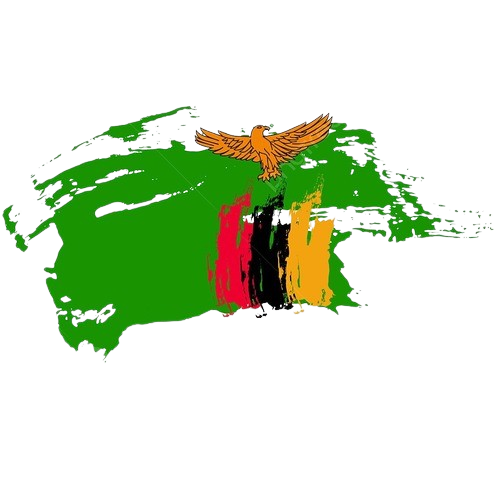How To Install Podman on Debian 12/11/10/9

Podman is a daemonless container engine for developing, managing, and running OCI Containers on your Linux System. It was created to replace Docker which requires a daemon running in the background. This guide will walk you through the installation of Podman on Debian 12/11/10/9 Linux machines.
Podman uses container runtimes as well for example runc but the launched containers are direct descendants of the podman process. It is part of the libpod library
Step 1: Update System
Update package index:
sudo apt -y update && sudo apt -y upgradeAfter the upgrade we always recommend a system reboot if this is a requirement.
[ -f /var/run/reboot-required ] && sudo reboot -fStep 2: Install pre-requisites
In this guide, we will use ansible role which automates the installation of Podman on Debian system. If ansible is already installed on the system please remove it.
sudo apt update
sudo apt remove ansibleInstall other tools required for the installation to work.
sudo apt install vim git uidmap fuse3 fuse-overlayfs
If planning to build from source in future you can install all dev tools
sudo apt install \
btrfs-progs \
git \
golang-go \
go-md2man \
iptables \
libassuan-dev \
libbtrfs-dev \
libc6-dev \
libdevmapper-dev \
libglib2.0-dev \
libgpgme-dev \
libgpg-error-dev \
libprotobuf-dev \
libprotobuf-c-dev \
libseccomp-dev \
libselinux1-dev \
libsystemd-dev \
pkg-config \
runc \
uidmap
Install Python and pip tools on your Debian system
### Python 3 ###
sudo apt install python3 python3-pip
sudo pip3 install --upgrade pip
### Python 2 ###
sudo apt install python2 python2-pip
sudo pip install --upgrade pipStep 3: Install Podman on Debian
We can install Ansible from APT repository or using ansible depending on your preference.
Method 1: InstallPodman on Debian from APT repos
There are two main APT repositories containing Podman Deb packages.
Option 1) Using alvistack APT repository
An alternative Debian package installation option is from alvistack package repos. Start with repository key importation process.
source /etc/os-release
wget http://downloadcontent.opensuse.org/repositories/home:/alvistack/Debian_$VERSION_ID/Release.key -O alvistack_key
cat alvistack_key | gpg --dearmor | sudo tee /etc/apt/trusted.gpg.d/alvistack.gpg >/dev/nullAdd the repo to your system.
echo "deb http://downloadcontent.opensuse.org/repositories/home:/alvistack/Debian_$VERSION_ID/ /" | sudo tee /etc/apt/sources.list.d/alvistack.listYou should be able to see the repository in the list when you run apt update command:
$ sudo apt update
Hit:1 http://security.debian.org/debian-security bullseye-security InRelease
Hit:2 http://deb.debian.org/debian bullseye InRelease
Hit:3 http://deb.debian.org/debian bullseye-updates InRelease
Get:4 http://downloadcontent.opensuse.org/repositories/home:/alvistack/Debian_11 InRelease [1538 B]
Hit:5 http://deb.debian.org/debian bullseye-backports InRelease
Get:7 http://downloadcontent.opensuse.org/repositories/home:/alvistack/Debian_11 Packages [197 kB]
Fetched 200 kB in 1s (342 kB/s)
Reading package lists... Done
Building dependency tree... Done
Reading state information... Done
Install Podman on Debian system using apt package manager
sudo apt install podman python3-podman-compose We can see the version of Podman installed by running the commands below:
$ podman version
Client: Podman Engine
Version: 4.6.1
API Version: 4.6.1
Go Version: go1.21.0
Built: Thu Jan 1 00:00:00 1970
OS/Arch: linux/amd64Option 2) Using Kubic libcontainers repository
Import repository GPG key:
sudo apt update && sudo apt install wget lsb-release -y
source /etc/os-release
wget https://download.opensuse.org/repositories/devel:/kubic:/libcontainers:/stable/Debian_$VERSION_ID/Release.key
cat Release.key | gpg --dearmor | sudo tee /etc/apt/trusted.gpg.d/libcontainers.gpg >/dev/null
Add Kubic libcontainers repository to your Debian system.
echo "deb https://download.opensuse.org/repositories/devel:/kubic:/libcontainers:/stable/Debian_$VERSION_ID/ /" | sudo tee /etc/apt/sources.list.d/libcontainers.listCheck if the repository added is visible in the list.
$ sudo apt update
Hit:1 http://deb.debian.org/debian bullseye InRelease
Hit:2 http://deb.debian.org/debian bullseye-updates InRelease
Hit:3 http://security.debian.org/debian-security bullseye-security InRelease
Hit:4 http://deb.debian.org/debian bullseye-backports InRelease
Get:5 https://download.opensuse.org/repositories/devel:/kubic:/libcontainers:/stable/Debian_11 InRelease [1634 B]
Get:6 https://downloadcontent.opensuse.org/repositories/devel:/kubic:/libcontainers:/stable/Debian_11 Packages [34.4 kB]
Fetched 36.0 kB in 1s (62.6 kB/s)
Reading package lists... Done
Building dependency tree... Done
Reading state information... DonePerform system upgrade:
sudo apt update && sudo apt -y full-upgrade
[ -f /var/run/reboot-required ] && sudo reboot -fThen final step is the installation of Podman on Debian 11/10/9:
sudo apt install podman -yCheck version installed to confirm this was successful.
$ podman version
Version: 3.4.2
API Version: 3.4.2
Go Version: go1.15.2
Built: Thu Jan 1 00:00:00 1970
OS/Arch: linux/amd64Method 2: Install Podman on Debian using Ansible
For Ansible automated way, start by cloning Ansible Role from Github using git command:
mkdir -p ~/.ansible/roles
cd ~/.ansible/roles
git clone https://github.com/alvistack/ansible-role-podman.git podmanUse pip3/pip to install all requirements including ansible.
cd podman
pip3 install --upgrade --ignore-installed --requirement requirements.txtAdd ~/.local/bin to your PATH env
### Bash ###
echo 'export PATH=$PATH:~/.local/bin' >>~/.bashrc
source ~/.bashrc
echo $PATH
### Zsh ###
echo 'export PATH=$PATH:~/.local/bin' >>~/.zshrc
source ~/.zshrc
echo $PATHNow execute the sequence necessary to converge the instances
molecule convergeSample execution output:
....
ASK [include role] ************************************************************
TASK [podman : include default variables] **************************************
ok: [localhost]
TASK [podman : include release specific variables] *****************************
ok: [localhost] => (item=/home/debian/.ansible/roles/podman/files/../vars/debian-11.yml)
TASK [podman : include release specific tasks] *********************************
included: /home/debian/.ansible/roles/podman/tasks/debian.yml for localhost => (item=/home/debian/.ansible/roles/podman/tasks/./debian.yml)
TASK [podman : apt-key add] ****************************************************
ok: [localhost] => (item={'keyring': '/etc/apt/trusted.gpg.d/home_alvistack.gpg', 'url': 'http://download.opensuse.org/repositories/home:/alvistack/Debian_11/Release.key', 'id': '789CFFDE0295B8A1F4E5690C4BECC97550D0B1FD', 'state': 'present'})
TASK [podman : apt-add-repository] *********************************************
ok: [localhost] => (item={'filename': 'home:alvistack', 'repo': 'deb http://download.opensuse.org/repositories/home:/alvistack/Debian_11/ /', 'state': 'present'})
TASK [podman : apt-get install] ************************************************
changed: [localhost] => (item={'state': 'latest', 'name': 'podman'})
TASK [podman : flush handlers] *************************************************
RUNNING HANDLER [podman : podman | systemctl restart podman.service] ***********
ok: [localhost -> localhost] => (item=localhost)
TASK [podman : systemctl start podman.service] *********************************
ok: [localhost]
PLAY RECAP *********************************************************************
localhost : ok=45 changed=10 unreachable=0 failed=0 skipped=0 rescued=0 ignored=0Once done finalize the installation by running the following command:
molecule verifyExecution output is as shared in screenshot below

Step 4: Confirm Podman installation on Debian
Check podman version
$ podman --version
podman version 4.6.1
$ podman version
Client: Podman Engine
Version: 4.6.1
API Version: 4.6.1
Go Version: go1.21.0
Built: Thu Jan 1 00:00:00 1970
OS/Arch: linux/amd64You can display information pertaining to the host, current storage stats, and build of podman.
$ podman info
host:
arch: amd64
buildahVersion: 1.26.1
cgroupControllers:
- memory
- pids
cgroupManager: cgroupfs
cgroupVersion: v2
conmon:
package: conmon_100:2.1.0-2_amd64
path: /usr/libexec/podman/conmon
version: 'conmon version 2.1.0, commit: '
cpuUtilization:
idlePercent: 99.33
systemPercent: 0.23
userPercent: 0.45
cpus: 4
distribution:
codename: bullseye
distribution: debian
version: "11"
eventLogger: file
hostname: debian
....Main configuration files:
- /etc/containers/registries.conf – configuration file which specifies which container registries should be consulted when completing image names which do not include a registry or domain portion.
- /etc/containers/mounts.conf – specify volume mount directories that are automatically mounted inside containers when executing the
podman runorpodman buildcommands
Step 5: Test Podman installation on Debian
Lt’s start by pulling Alpine docker image.
$ podman pull alpine
Trying to pull docker.io/library/alpine...
Getting image source signatures
Copying blob 050382585609 done
Copying config b7b28af77f done
Writing manifest to image destination
Storing signatures
e66264b98777e12192600bf9b4d663655c98a090072e1bab49e233d7531d1294Run docker container:
$ podman images
REPOSITORY TAG IMAGE ID CREATED SIZE
docker.io/library/alpine latest e66264b98777 3 weeks ago 5.82 MB
$ podman run -ti docker.io/library/alpine /bin/sh
/ # cat /etc/os-release
NAME="Alpine Linux"
ID=alpine
VERSION_ID=3.16.0
PRETTY_NAME="Alpine Linux v3.16"
HOME_URL="https://alpinelinux.org/"
BUG_REPORT_URL="https://bugs.alpinelinux.org/
/# exitNow that we have confirmed we can create a container, let’s remove it.
$ podman rm -f `podman ps -aq`
777f6e4921dea595c900fc22cb3d0ee7d1009cc0a7e74fa1d2b9dfa7412c371dThere you go. Check more examples on Podman tutorial available in Github and our guide.
More guides on Podman:
- How To run Docker Containers using Podman and Libpod
- Setup Docker Container Registry with Podman & Let’s Encrypt SSL
- Run FreeIPA Server in Docker / Podman Containers
- Set SELinux Context Label for Podman Custom graphroot Directory
Related guides:





